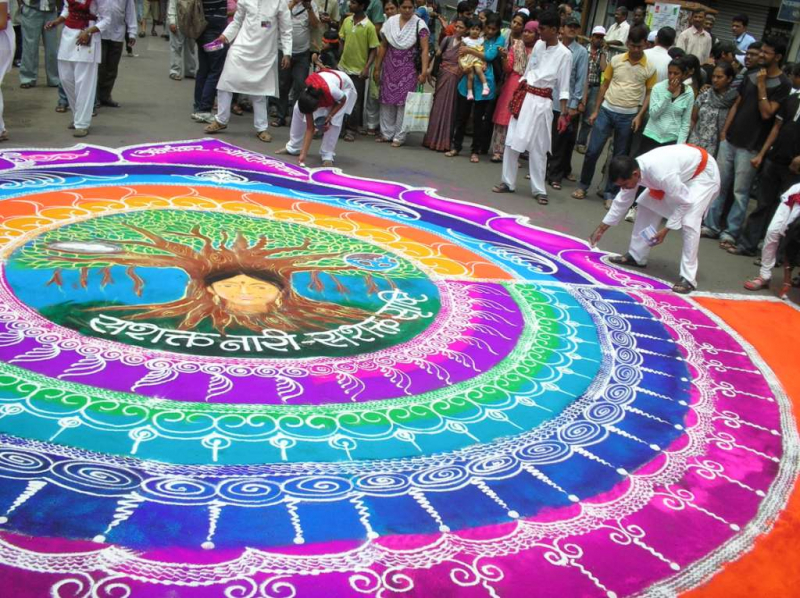Festival tradition and Rangoli are inseparable in India
Festival tradition and Rangoli are inseparable in India, where festivals are celebrated with great fervor and color. Rangoli, the art of creating intricate patterns on the ground, is an integral part of these celebrations, serving as a symbol of joy, spirituality, and hospitality.
During festivals like Diwali, the Festival of Lights, Rangoli takes center stage. Elaborate designs are meticulously crafted in front of homes to welcome Goddess Lakshmi and symbolize the triumph of light over darkness. The vibrant colors and patterns create a festive atmosphere that resonates with the spirit of the occasion.
In the southern state of Tamil Nadu, Rangoli is known as "Kolam" and is a vital part of Pongal, the harvest festival. People draw colorful Kolam patterns using rice flour as an expression of gratitude for a bountiful harvest.
During Navaratri in Gujarat, Rangoli patterns are an integral part of the Garba dance celebrations, while in Kerala, the floral Rangoli known as "Pookalam" adorns courtyards during Onam.
These Rangoli designs aren't merely decorations; they are expressions of cultural and spiritual significance. They serve as a warm and inviting gesture, symbolizing the unity and happiness that come with the festival season. Rangoli, in essence, is a visual representation of the vibrancy and diversity of India's rich festival tradition.











